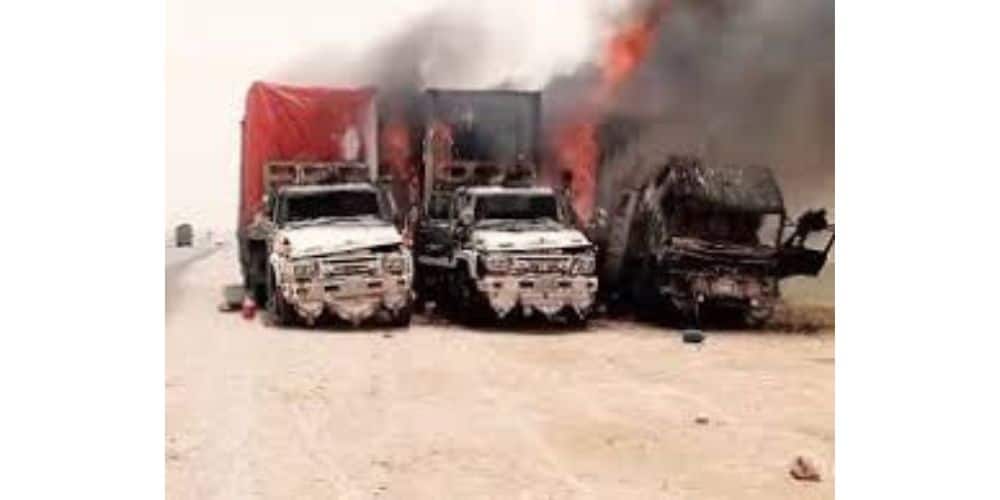QUETTA: The local stakeholders and analysts have expressed serious concerns over repeated attacks on transport and mineral extraction operations in Balochistan by the Indian-funded terrorist groups, they describe as deliberate attempts to sabotage the Balochistan’s economic potential and isolate it from national development.
According to details, Baloch workers have long been a backbone of Pakistan’s transport and mineral sectors. From truck drivers and contractors to labourers and porters, thousands of Baloch men and women are actively involved in industries that not only sustain their communities but also contribute significantly to the national economy.
“These are not just industries, they are lifelines for entire families and communities,” said Haji Karim Baloch, a contractor in the Chagai district. “When a truck is burned or a convoy is attacked, it’s not just cargo that is lost. It’s someone’s livelihood, someone’s ability to feed their children.”
The mineral trade in particular has become a key source of income in the region, supporting small businesses such as hotels, repair shops, and local transport services. Any disruption to this network sends shockwaves through the local economy, affecting countless people beyond the immediate victims of the violence.
Security officials believe some of these attacks are being carried out under the guise of political resistance. However, critics argue that such violence achieves the opposite deepening poverty, disrupting progress, and reinforcing the very marginalisation that militants claim to oppose.
ALSO READ: BLA-linked militants torch truck carrying essential supplies in Nokkundi, Balochistan
The political analysts said that targeting economic infrastructure in the name of resistance only pushes Balochistan further into underdevelopment, adding that if anything, it isolates the province from the rest of the country and deprives its youth of jobs and hope.
Calls are growing for increased protection of key economic corridors, fairer resource sharing, and greater engagement with local communities to ensure that development benefits are both sustainable and inclusive.





